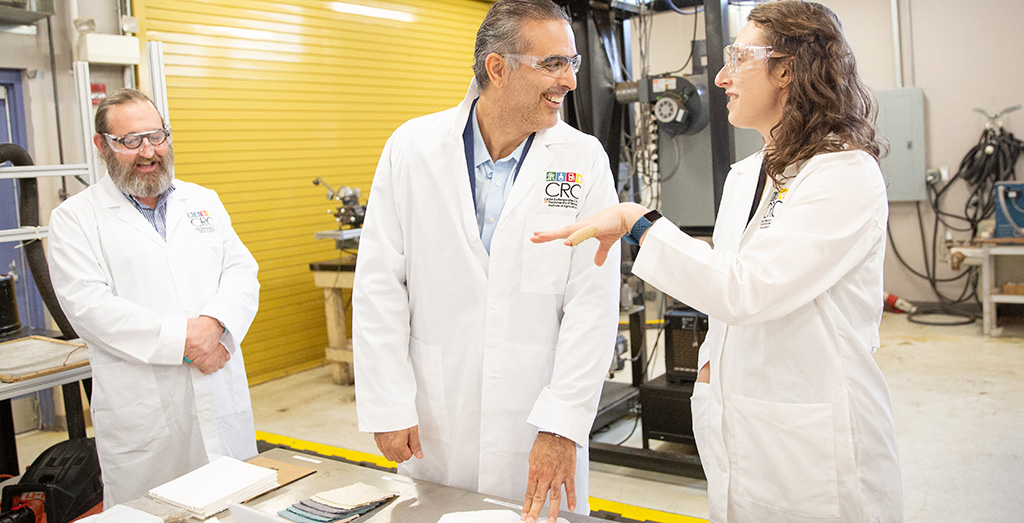
Cecile Grubb explains her research to Pablo Di Si, president of Volkswagen Group of America, during his recent visit to UT.
As part of a longstanding research partnership with the University of Tennessee, Knoxville, Volkswagen awards several fellowships to UT doctoral students, providing them with real-world experience in industrially relevant research and development.
Cecile Grubb is a current Volkswagen PhD Fellow, and we sat down to discuss her experience. The following interview has been lightly edited.
What are you studying?
I am pursuing a PhD in materials science and engineering with a focus on manufacturing and recycling natural fiber composites. The goal of my work is to develop automotive materials that not only have a lower carbon footprint than conventional materials, but also to think about how they can be recycled and reused at the end of their first life cycle.
What UT professors and Volkswagen professionals are you working with?
My academic advisors are Professors David Harper and David Keffer, and on the Volkswagen side I work closely with Marton Kardos and Hendrik Mainka. I’ve also been lucky enough to work with a variety of other UT professors like Dayakar Penumadu and Nour Abdoulmoumine, who have expertise in areas like automotive materials and life cycle analysis. Overall, I’ve received a ton of mentorship from both the academic and industry sides of my project.
Have you had to travel for your research, or do you plan to travel to complete your research or degree?
This summer I will be traveling to Wolfsburg, Germany, to present on my research at an internal Volkswagen research event. This is a really exciting opportunity because I’ll be presenting to important Volkswagen officials such as the Group Board. Beyond this, I hope to take advantage of the strong relationship with our German research colleagues to do research in Wolfsburg as part of my PhD.
When do you estimate you will graduate, and what will be the title of your degree?
I hope to graduate in fall 2024 with a PhD in materials science and engineering.
Do you have any plans after graduation?
I plan to continue working on sustainable materials research so that I can use my knowledge and talents to fight climate change. I love working on industry–academic collaborations because there is the potential for my research to make a large impact, particularly when it is on something like automotive materials. For example, Volkswagen Group of America is targeting to produce 90,000 ID.4 vehicles in 2023. If we could replace 10 pounds of plastic parts in a single vehicle with sustainable materials, then that’s almost a million pounds of plastic replaced per year. And if you think about all of the cars that Volkswagen makes, the size of the impact can be even larger.